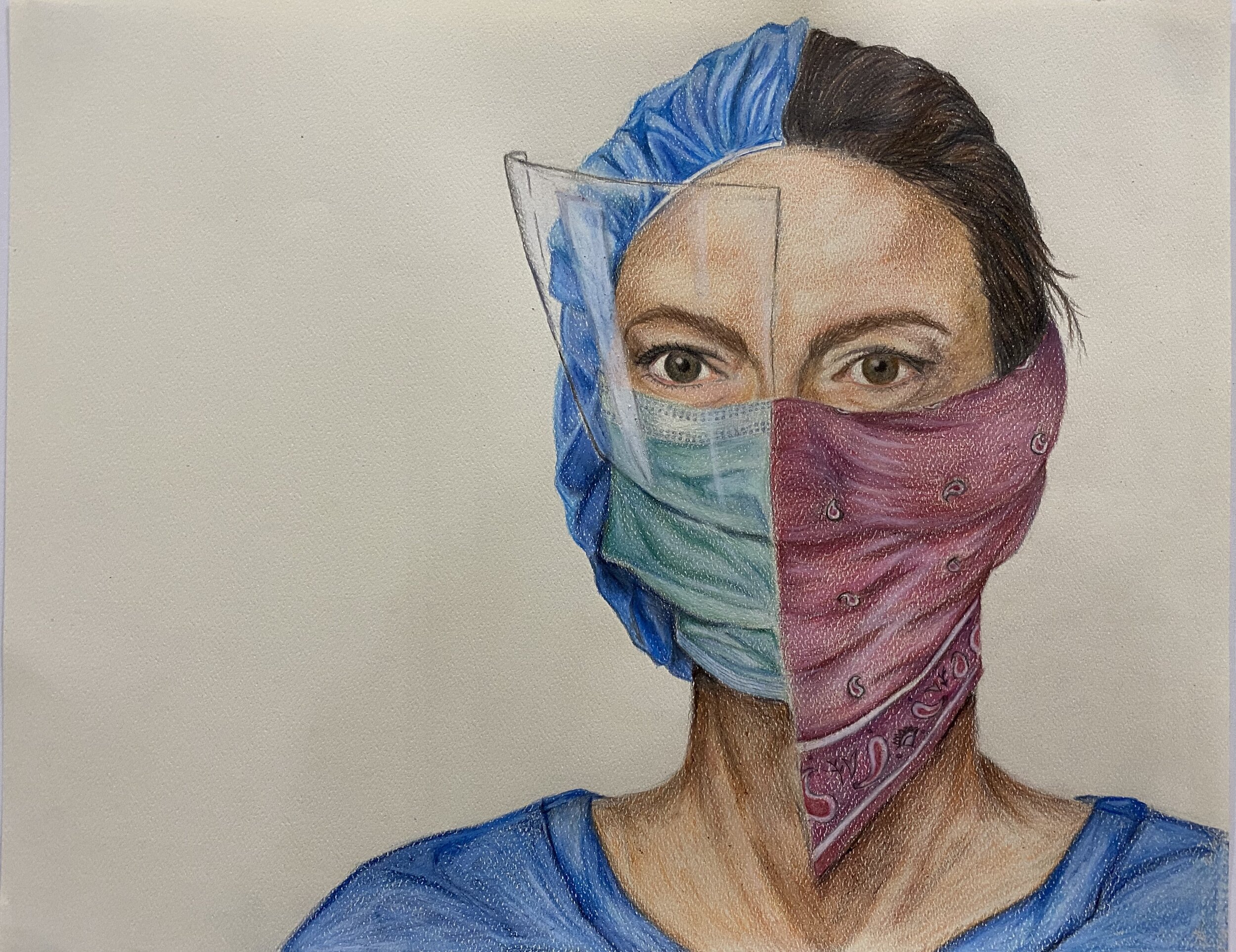OUR MISSION & VISION
Intima: A Journal of Narrative Medicine is a literary journal dedicated to promoting the theory and practice of narrative medicine, an interdisciplinary field that enhances healthcare through the effective communication, empathy and understanding between clinicians, caregivers and patients. Our name Intima has a specific resonance in the field: For us, narrative involves the intimate interface between people, who yield and gain from the experience of stories involving the clinical encounter.
The word itself has an anatomical reality: intima is the thin layer lining a blood vessel, speeding blood to the heart and brain, an apt analogy for the kind of narratives we publish that speak to the emotions and the intellect, the feelings and facts that engage the senses in stories with meaning and impact..
©The Art of Anatomy by Khalil Harbie. Intima, Fall 2013
Intima was created in 2010 by a group of graduate students in the Master of Science program in Narrative Medicine at Columbia University; the first issue of Intima was Fall 2011. Many issues later, Intima has attracted writers in the literary and medical fields from around the world. In a recent issue, for example, our contributors have included a psychology professor at the University of Warsaw, a bone cancer survivor from Boston, a nursing student at Northeastern, a professor of visual communication at Ryerson University in Toronto, Ontario, and a patient advocate from Huntsville, Alabama.
In 2020, The New York Times columnist David Brooks honored “The Shape of the Shore,” a non-fiction essay by Dr. Rana Awdish with his Sidney award, given annually for best long-form essays. In his OpEd column, Brooks writes:
“There were many gripping diaries written by medical personnel fighting Covid-19. I found Rana Awdish’s “The Shape of the Shore” in Intima, among the most compelling. It not only describes the horror of working in a plague but also how hard it is to communicate that horror, even to the psychologists who were brought in to help, and who continually make the doctors and nurses feel misheard and misunderstood. At the heart of the problem were the moral injuries suffered by doctors and nurses forced to act in ways that seemed to them inhumane.”
Intima has also established a foothold in the health humanities world through its essay contests. The first was judged by Susannah Cahalan, author of the New York Times bestseller Brain on Fire: My Month of Madness. Participants responded to a quote by Virginia Woolf: "There is, let us confess it (and illness is the great confessional), a childish outspokenness in illness; things are said, truths blurted out, which the cautious respectability of health conceals. About sympathy for example—we can do without it." That powerful quote served as a nexus between creativity and moving illness narratives.
© Expectation Vs Reality by Spoorthi Davala Spring 2020 Intima
Crossroads, a weekly blog post written by contributors and editors, reflects how narrative medicine themes in the current issue reflect back on our Archives.
In the past, we have hosted readings at New York City’s Bowery Poetry Club. These nights allow contributors and audience members a sense of involvement with the work published in the Intima. In our new reality, we hope to launch readings with our audience via our social media.Intima has also hosted Twitter chats (#intimachat) with writer Louise Aronson, Sayantani DasGupta reflecting on her TedX Talk on Narrative Humility, and 33Charts's Bryan Vartabedian, a professor of pediatrics at Baylor. Engage with us on Facebook and Twitter (@The_Intima) and Instagram (intimajournal). We welcome your engagement with our journal.
—Donna Bulseco for the Editorial Board of Intima: A Journal of Narrative Medicine


